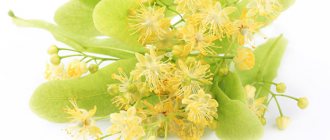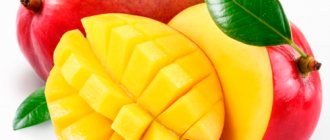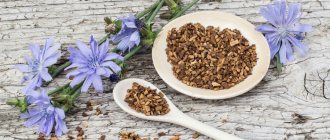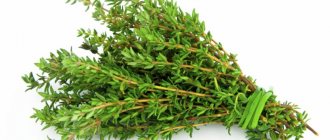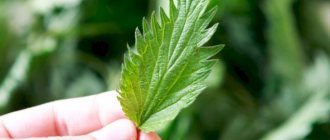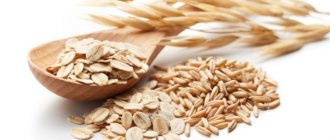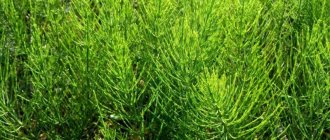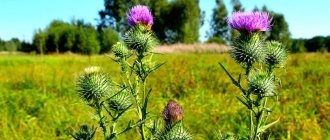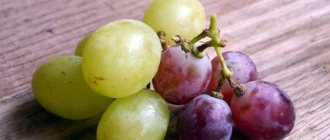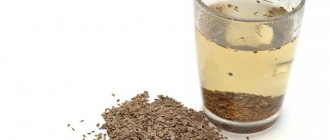It is well known that it is very useful for pregnant women to eat a lot of vegetables and fruits, since they are a source of huge amounts of vitamins and other microelements necessary for the body of the expectant mother. In general, this is true, but all these products have different chemical compositions, and accordingly, the need for them is not the same; moreover, some substances contained in vegetables and fruits in large quantities may be unsafe during pregnancy. Does this apply to peaches, what is valuable in these southern fruits and in what quantities should they be consumed while carrying a baby - all this is the topic of our article.
- What are the benefits of peaches during pregnancy?
- Keep it in moderation
- Contraindications and harm
- How to choose the right one when purchasing
- How and where to store at home
- What can be done, where to add and what to combine with
Chemical composition of peach
Peaches and nectarines during pregnancy are one of the most delicious summer fruits, eaten fresh, used for making compote, jam, desserts, fruit salads or as a filling for baked goods. Eating peaches is also good for health, as they contain:
- vitamin A;
- beta-carotene;
- B vitamins, except B12;
- vitamin C;
- vitamin E;
- vitamin H;
- vitamin K;
- vitamin PP;
- potassium;
- calcium;
- silicon;
- magnesium;
- sodium;
- phosphorus;
- chlorine;
- iron;
- iodine;
- cobalt;
- manganese;
- copper;
- molybdenum;
- chromium;
- zinc.
The calorie content of peach per 100 g of product is 45 kcal.
Share of BZHU in calorie content:
- proteins - 1 g (9%);
- fats - 0 g (2%);
- carbohydrates - 10 g (89%).
Girl eating peach
How to eat nectarines during pregnancy
The maximum amount of nutrients can be obtained by consuming fresh nectarines. Fruits can also be baked, used to make fruit salads, dried and canned.
Other ways to use:
- In the form of juice, the drink helps improve intestinal motility, which is an excellent prevention of constipation. Take ½ glass of the drink 20 minutes before meals.
- If your blood pressure is high, it is recommended to eat fresh nectarines 30 minutes before meals.
- Eating nectarine helps cleanse the body. It is recommended to eat fruits even at the stage of pregnancy planning in the amount of 3 fruits daily.
Nectarine pulp can also be used for cosmetic purposes by preparing homemade face masks. Additional ingredients in this case are sour cream and olive oil.
Benefits and harms
Eating peach during pregnancy has the following beneficial effects on the body of the expectant mother:
- strengthening the immune system;
- improving the condition of skin, hair and nails;
- normalization of blood glucose levels;
- relief from toxicosis;
- improving the functioning of the cardiovascular system;
- support of water-salt balance;
- elimination and prevention of edema;
- improvement of visual acuity;
- removing toxins and improving bowel function;
- normalization of emotional state;
- normalization of muscle tone, prevention of cramps and contractions of the uterus.
Can peach be harmful during pregnancy? Yes, if a pregnant woman shows signs of an allergy to the product, despite the fact that there were none before conception. Women who cannot tolerate pollen should also eat fruits with caution.
Experts advise women who experience rapid weight gain to refrain from eating peaches. Despite the low calorie content of fruits, they contain a large amount of sugar.
Fruits sold in stores or markets may be treated with pesticides or contain nitrates. As a result, it is recommended to eat only those fruits that are grown with your own hands or purchased from summer residents. It is also important to eat peaches when they are in season to reduce the risk that they have been treated with various chemicals to ripen them quickly.
"Summer" pregnancy
Pregnancy in the summer – it would seem, what could be better? But, alas, reality often looks far from idyllic. All around is heat, swelling, thirst and no hot water...
The heat and stuffiness for pregnant women is a real test. But unlike “spring” mothers, you are not at risk of vitamin deficiency, and the envy of “autumn” mothers is not at risk of depression associated with rain and lack of sun. And the “charms” of the winter months in the form of falls, hypothermia and other surprises cannot be compared with the difficulties of the summer period. After all, if you arm yourself with the recommendations of doctors, you can easily overcome them.
Don't drink grape juice
If the first trimester of pregnancy occurs in the summer and is accompanied by toxicosis, doctors do not recommend limiting yourself to fluids - the expectant mother should not feel thirsty. But this does not mean that you can drink liters of anything! Kvass, compotes, canned juices and nectars retain water in the body, so it is better to exclude them from the diet. Soda also has “side effects” - it often causes heartburn and belching. In principle, the expectant mother can treat herself to fruit drink and freshly squeezed juice, but without overusing grape and plum juice. The first causes fermentation in the stomach, and the second weakens. In general, in the summer heat it is better to switch to still water and tea, green or herbal.
Is it possible to eat peaches during pregnancy?
Many expectant mothers doubt whether it is possible to eat peaches and apricots during pregnancy, whether they will bring benefit or harm to the body, and how the baby in the tummy will react to them. Below we will figure out whether it is allowed to eat peaches during pregnancy in the first, second and third trimester.
In the early stages
The first trimester of pregnancy is the most important time in the life of every expectant mother and fetus. It is during this period that the formation of all the baby’s systems and organs occurs. For this reason, at this stage it is important to take care not only of a positive emotional background, but also to carefully monitor your diet.
In the 1st trimester, you should consume foods containing vitamins as much as possible, adhere to the basics of a balanced diet, and spend as much time as possible in the fresh air.
In the absence of allergies, it is useful to eat peaches during pregnancy, as they contain many vitamins and, most importantly, folic acid, which is important for successful conception and bearing a child. At the same time, peaches can be eaten fresh or used in fruit salads, desserts and baked goods.
In the later stages
In the second and third trimester, eating peaches is an excellent prevention of the development of vitamin deficiency and seasonal colds, since the rich chemical composition of the fruit helps strengthen the immune system.
You can eat peaches in the 2nd and 3rd trimester only if you are not allergic to them. It is important to remember moderation, as eating large quantities of fig, flat or regular peaches can cause an allergic reaction or digestive upset. If after eating a fragrant fruit you feel worse, you should discard it.
Keep it in moderation
All of the above, however, does not mean that peaches can be consumed in unlimited quantities. However, this applies to any product and to everything in general: anything can cause harm if reasonable measures are not taken.
Doctors recommend eating two to three peaches a day, but this dose is actually quite arbitrary. For example, you need to keep in mind that peach, like other exotic fruits such as kiwi, melon, persimmon, pomegranates, etc., are quite allergenic. In particular, allergies are often caused by the carotene contained in peach. Recent research refutes the previously dominant view that consuming allergenic foods during pregnancy increases the risk of having a child with a predisposition to allergies.
Did you know? American scientists, having summarized data from a survey of several thousand children, have established an amazing relationship: it turns out that mothers who regularly consumed the most allergenic foods during pregnancy have children who suffer from food allergies three times less often than women who avoid such foods while carrying a child. It remains to be assumed that exposure to an allergen in the womb is not a threat to the occurrence of this disease in the future, but protection from it.
But the fact is that allergies are very dangerous for the pregnant woman herself, therefore, if such a pathology exists, eating peaches should be approached with great caution, but even if the expectant mother has never suffered from allergies, you should still not overeat carotene-containing fruits . Allergies can appear at any age. If there was no insurance before pregnancy, this does not mean that a woman can consider herself fully insured.
Moreover, once it occurs, this unpleasant disease will never leave you. One more point worth remembering. Since peaches are 86% water, the consumption of these fruits should be taken into account when determining your daily fluid intake. Although they are able to remove excess moisture from the body, this does not mean that such a dessert can be washed down with water. If you are prone to swelling, lean on peaches, but reduce the total amount of other liquid foods accordingly!
Next, when we talk about the benefits of peaches, we mean fresh fruit. Always, and this rule applies not only to pregnant women, you should try to give preference to seasonal fruits growing in your climate zone. They are the most valuable source of nutrients and pose minimal threat (including an allergic reaction). But what to do in winter, when nothing grows in the gardens and beds?
Canned fruits seem to be one of the possible solutions, but they are usually categorically not recommended for pregnant women. Firstly, the vast majority of useful substances decompose during heat treatment. Secondly, such a product may contain preservatives and other “chemicals” that are dangerous for the expectant mother’s body. Thirdly, even with natural preservation (when jars with aromatic contents were lovingly prepared for you by your beloved grandmother, and she grew the raw materials for the twist in her own garden), additional sugar is present in such products, because it is this that acts as a preservative and allows the fruit to be stored a few months.
Find out more about the beneficial properties of strawberries, currants, gooseberries, cherries, sweet cherries, grapes, lingonberries, cranberries, sea buckthorn, dogwood for the health of the expectant mother.
Excess sugar during pregnancy will definitely not be beneficial. There is another contraindication for stone fruits. The fact is that these bones are poisonous; more precisely, the poison is the amygdalin they contain (it is also sometimes called vitamin B17). This substance is a glucoside of hydrocyanic acid, the potassium salt of which is nothing more than the well-known cyanide, or potassium cyanide.
Important! Peach pits are more dangerous than apricot and cherry pits, since the dose of amygdalin in them is much higher (up to 3%, while in apricots on average 1.5%, in cherries - up to 0.8%). In terms of the amount of this substance, peach pits are surpassed only by almonds.
But if, when eating fresh peaches, we simply get rid of the pit, then in whole canned fruits, especially when stored for a long time, as is commonly believed, amygdalin from the pit gets into the pulp and into the syrup, thus such a product becomes poisonous.
And yet, theory is theory, but I don’t want to conduct experiments on my own child. But it won’t hurt to get rid of groundless fears either. Therefore, the question of whether pregnant women can have canned peaches can be answered in the affirmative, but provided that:
- they are consumed in winter or spring, when there are simply no seasonal fruits growing in your climate zone, and the need for vitamins must be satisfied;
- we are talking about high-quality homemade preparations, and not about a jar with a beautiful sticker, purchased in a supermarket and containing a lot of “yes”;
- the preparation was made last summer and no later;
- A small amount of the product will be eaten, because the amount of vitamins in it is limited, but there is too much sugar.
Did you know? Modern research allows us to doubt the “horror stories” regarding the toxic properties of canned peaches with pits. First, it turns out that in healthy cells cyanide is not released from amygdalin, so vitamin B17 is not poisonous. Moreover, the poison is released precisely in atypical, that is, cancer cells, which is why amygdalin is widely used to treat malignant tumors. Secondly, it has been experimentally proven that amygdalin is destroyed when heated above +75 ° C, so it is more likely that the poison will be contained in peach liqueur than in compote. It is also worth remembering the unsuccessfully poisoned Grigory Rasputin, who was treated to cakes with potassium cyanide, not knowing that cyanide is neutralized by sugar, and there is quite a lot of it in canned peaches.
And yet, if we talk about the form of preparing fruit to replenish the body of a pregnant woman with useful substances in the winter, it is better to give preference to dried and frozen products rather than canned food and jams.
How to choose the right peaches
The benefits of eating peaches will only be if you eat a quality product. Read about the rules for choosing peaches below:
- The optimal time to buy fruit is from the end of July to the end of August. At this time, there is a high chance that the fruits will be healthy and tasty.
- You should not buy peaches that are too hard, unripe and odorless, as they have no taste and can also harm the body by causing indigestion.
- It is not recommended to buy overripe peaches as they can cause serious poisoning. They are easy to identify - such fruits have a characteristic smell of fermentation, a too soft surface with many dents.
- A high-quality product should be smooth and elastic, and have a characteristic sweet aroma. The peel should not have dents, damage or scratches. There may also be a small white coating on the fruit, which is not a sign of spoilage of the peach.
Photo of fresh peaches
Unsurpassed record holder
If the content of some vitamins of a peach is inferior to other fruits, then in one factor it is significantly superior to them. Peach contains a large amount of amino acids. These substances are necessary for the body because they are the “building blocks” of protein. And although the percentage in relation to the daily norm is not so high, not a single fruit contains such a quantity of useful amino acids at the same time. A lack of these substances in a pregnant woman’s body can provoke pathologies in the child’s intrauterine development, various disorders, such as depression in women, liver problems, and digestive problems.
Content of nonessential and essential amino acids in peaches:
Storage rules
Peaches can be stored at room temperature or in the refrigerator, but the shelf life of the fruit varies significantly. Ripe peaches without signs of damage remain fresh for 2-3 days at room temperature and up to a week and a half in the refrigerator.
Fruits should be stored in the shade, and it is important that the room temperature does not fall below 0 degrees (the exception is freezing the product).
Plastic bags are not suitable for storage, as an abundance of condensation will lead to rapid spoilage of the fruit. It is optimal to store peaches in a paper bag or wrapped in plain paper. Peaches last the longest when they are not in contact with each other and do not lie on top of each other.
Storing unripe peaches in a dark place at room temperature will help them ripen. But at the same time, such a product will not be as tasty and healthy as those fruits that have ripened in the sun.
Rules for choosing nectarines
The benefits of eating nectarines during pregnancy will only be if the fruits are chosen correctly. When purchasing a product, follow these recommendations:
- A high-quality fruit should be bright, without specks, cracks, dents or other signs of damage. In this case, its stalk should be brown and dry.
- The nectarine should be soft to the touch. You need to take a fruit that gives way when you press on the surface.
- Nectarines must have a specific aroma. If there is no smell, then most likely the fruits were ripened under artificial conditions (in a store, warehouse), and this negatively affects the taste of the fruit.
- The best time to buy nectarines is in July-August. May fruits may suffer in quality.
- Store nectarines in the refrigerator in a plastic container, but no more than 5 days.
- Nectarines can be ripened at home. They need to be placed together with the apple in a paper bag, lightly pricked in 2-5 places. At room temperature, nectarines ripen quite quickly, for this reason the process should be monitored every day.
Recipe for peach in syrup for the winter
You can enjoy the aromatic fruit not only in summer, but also at other times of the year if you preserve it for the winter. The recipe is presented below.
You will need:
- peaches - 1 kg;
- water - 1 l;
- granulated sugar - 0.4 kg;
- citric acid - ½ tsp.
How to cook:
- Rinse the fruit thoroughly, cut in half and remove the pit.
- Place the peach halves, cut sides down, in clean, sterilized 0.5 L or 1 L jars.
- Pour boiling water over the peaches to the very top of the jar. Cover with a lid and leave for a quarter of an hour.
- After the specified time, drain the water into the pan, add sugar and citric acid, bring to a boil and boil for 1-2 minutes.
- Pour boiling syrup over the peaches and immediately roll up with sterilized lids.
- Turn the jars upside down, cover with a warm blanket, let cool completely and store.
Nectarines for pregnant women: beneficial properties and contraindications
Nectarines (hunger peaches) are a variety of peaches that have smooth, plum-like skin. Sweet fruits grow in Cyprus, Italy, Tunisia and Greece. The main advantage of this fruit is that it is recommended to be consumed during pregnancy.
Beneficial properties for pregnant women
Nectarine is considered a dietary product, so pregnant women can use it in their diet.
The modified peach contains a lot of natural sugar (which is why it got its name from the word “nectar”), which in acceptable quantities will not cause weight gain. All components of this product improve metabolism, eliminate constipation, give energy, and help overcome anxiety. The components of the product help cleanse the blood, prevent the formation of stones in human organs, and improve blood circulation.
Among the advantages of the analyzed fruit is its fiber content and, with the help of which toxic substances can be removed. The fruit improves internal secretion processes and helps replenish fluid reserves in the body.
Nectarine can be useful during pregnancy if a woman has gained excessive weight and wants to bring her weight back to normal. Also, the “relative” of the peach is a better preventative against colds than chemical medications.
Quite often, sweet fruits are used as a remedy against toxicosis. Fruit can replace sweets.
Nectarines have a rich chemical composition : 100 grams of the product contain proteins - 9 grams, fats - 2 grams, carbohydrates - 8 grams. The fruit is characterized by low calorie content, since 100 grams contain only 48 kcal . Nectarines contain a lot of vitamin C (almost as much as lemon) and A (as much as carrots). The modified peach contains iron, potassium, phosphorus, folic acid, sulfur, calcium, and vitamin K.
Sodium in nectarines helps with hypertension, atherosclerosis, and removes fluid. Whether your body is healthy or not, this fruit will help increase the secretion levels in the digestive glands of your body. Therefore, it can be eaten during pregnancy in case of overeating. It will facilitate and speed up the digestion of food.
Sweet fruits can be taken not only as food, but also as a cosmetic face mask.
Although the fetus expels fluid, the body retains the necessary moisture. This promotes skin rejuvenation, gives it elasticity, and removes fine wrinkles on the face.
Like orange or chocolate, the peach “relative” relieves stress, improves the functioning of the nervous system, and acts as a sedative.
The juice of sweet fruits strengthens blood vessels, improves the functioning of the heart muscle, helps with anemia, and removes cholesterol. If you eat fruits in moderate doses, there is a decrease in the likelihood of thrombophlebitis.
Contraindications
The consumption of peaches should be limited in the following cases:
- diabetes mellitus, including gestational;
- obesity;
- kidney and liver pathologies;
- disorders of the thyroid gland.
In other cases, it is advisable to consult a doctor.
Peaches are incredibly tasty fruits that are ideal for the diet of an expectant mother. They saturate the body with all the necessary vitamins and minerals, positively affecting the well-being of the pregnant woman and the development of the fetus. At the same time, if you are allergic to a fruit, you should discard it and try to replace it, for example, with berries, namely raspberries and strawberries, which are no less healthy and tasty.
Benefits of peach for pregnant women
Peach is a relative of plum, cherry and apricot. This magical fruit has all the beneficial properties that a expectant mother needs:
- helps cope with nausea at the beginning of pregnancy - it will not only alleviate toxicosis, but also replenish lost vitamins and minerals;
- Vitamin C strengthens the body and promotes rapid recovery from colds;
- phytosterols reduce cholesterol levels in the body;
- magnesium has a calming effect and is beneficial for the nervous system;
- potassium helps cope with swelling at any time;
- calcium and phosphorus strengthen bone tissue, which is especially important in the second half of pregnancy;
- iron maintains normal hemoglobin levels;
- pectin promotes healthy digestion.
